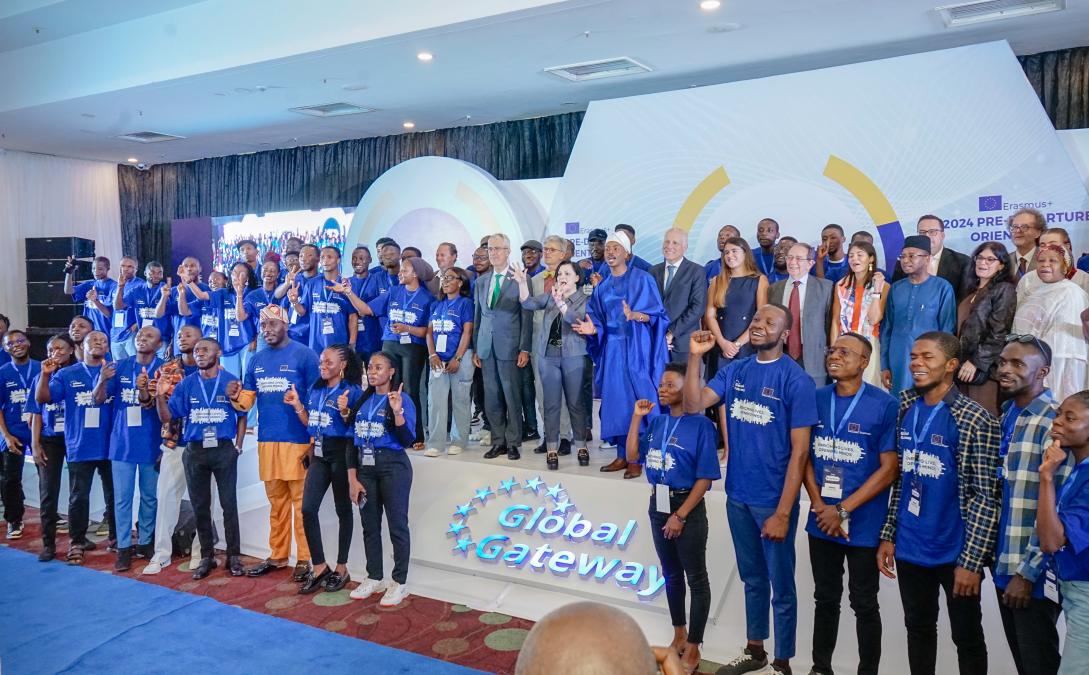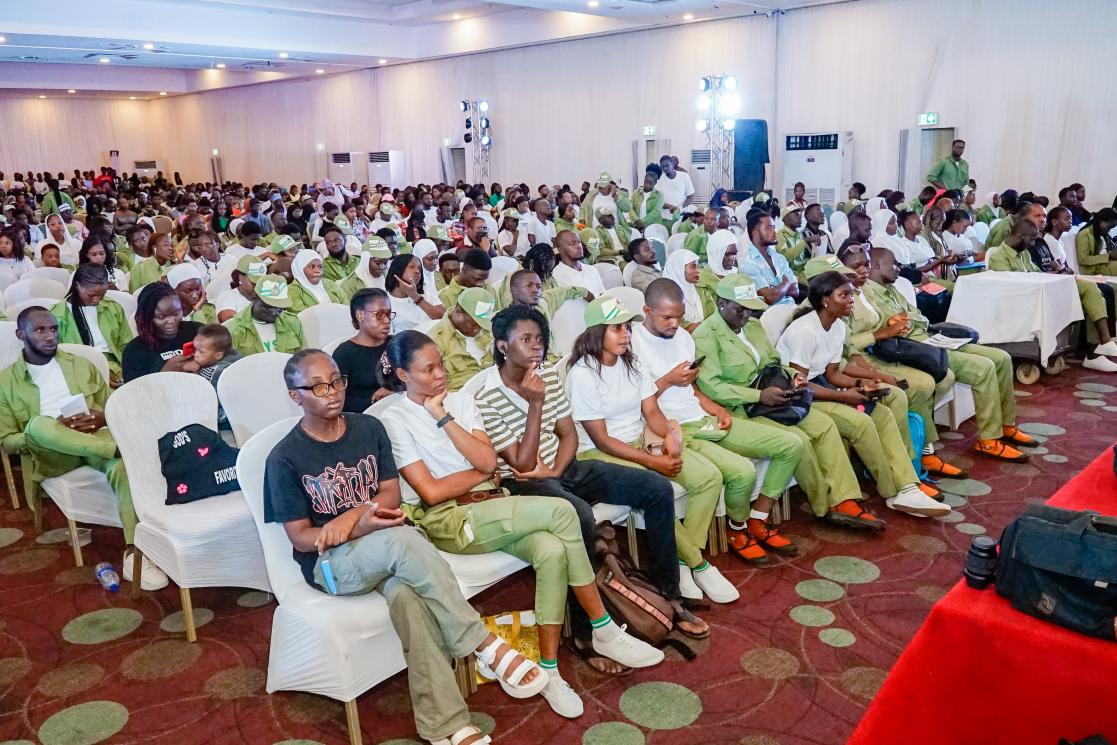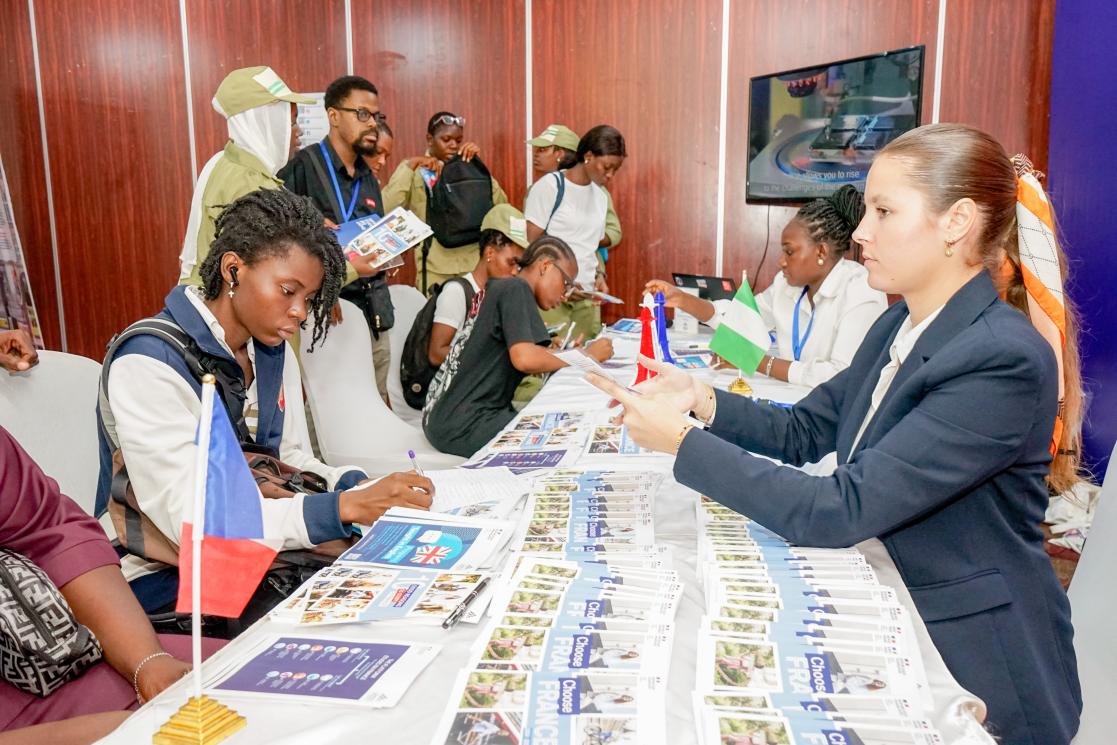Pre-Departure Orientation for Erasmus Scholarship Beneficiaries in Abuja

On Thursday, 4 July, the EU Delegation in Abuja hosted a pre-departure orientation for 142 Nigerians selected for the Erasmus Mundus Joint Master Degree (EMJMD) programme for the academic session commencing in September 2024. The event, held in parallel with a Study-in-Europe Fair, and organised in close collaboration with Member States, aimed to provide the prospective scholars with hands-on tips on how to make the best of the opportunities offered by the prestigious scholarship.
Congratulating the scholarship recipients, the Ambassador Samuela Isopi, said they should be proud of themselves, having been selected through a rigorous competitive process at global level conducted by a consortium of top European universities.

EU Del
With this number of awardees, Nigeria retains its top spot among beneficiaries of the EU postgraduate scholarships in Africa for the sixth year running, as well as a place among the top five recipient countries globally, coming after Pakistan, India, Bangladesh and Mexico. The number of Nigerians Nigeria admitted to participate in the EU’s EMJMD programme has exponentially increased in the last five years, from 44 in 2019 to 142 this year, after the record number of 200 in 2022.
“This makes us very proud. Nigeria has a much higher potential and we expect these numbers to grow in the years to come,” Ambassador Ispoi said.
She underlined the significance of the EMJMD programme, now in its 20th year, with its highly transformative impact on individuals, higher education institutions, and countries both within and outside of the EU. “Erasmus+ is the most successful programmes of the European Union to support education and youth in Europe and across the world. It is a concrete example of a win-win cooperation.”

EU Del
According to her, the Erasmus+ programme demonstrates the strong mutually beneficial partnership between the EU and Nigeria as well as the EU’s openness and readiness to offer regular migration pathways for young Nigerians based on their merit and their talent. Besides, she noted, it also underscores the EU’s commitment to creating concrete opportunities for Nigerian youth.
Youth and human capital are indeed at the heart of our cooperation. One cannot cooperate with Nigeria without prioritizing its youth, without investing in the future of the country. This is what the Erasmus programme is all about,” she said.

EU Del
The EU has been ramping up support to Nigeria’s higher education sector through is key funding programmes - Erasmus+ in the higher education sector, and Horizon Europe for research and innovation. Erasmus+ offers many opportunities apart from its flagship scholarship programmes: it supports mobility and short stays in Europe for researchers, students and staff, capacity-building of universities and TVET institutions through joint projects with sister European institutions, etc. Horizon Europe offers opportunities for Nigeria-based researchers and research institutions, in particular through the “Africa Initiative II”, which is addressed to African scientists.
The EU’s support for education in Nigeria aligns to national objectives and focuses on equitable access to quality education and teacher training. In its education sector support, the EU works with the governments of Kano, Sokoto, Jigawa, Adamawa, Bayelsa, Oyo, Katsina, Enugu and Plateau states. The projects aim at strengthening the education system, increase the use of digital technology for teaching, learning and system management, and mainstream green skills and knowledge by investing EUR 45.4 million, in total during, 2021-2027 in the education projects.
